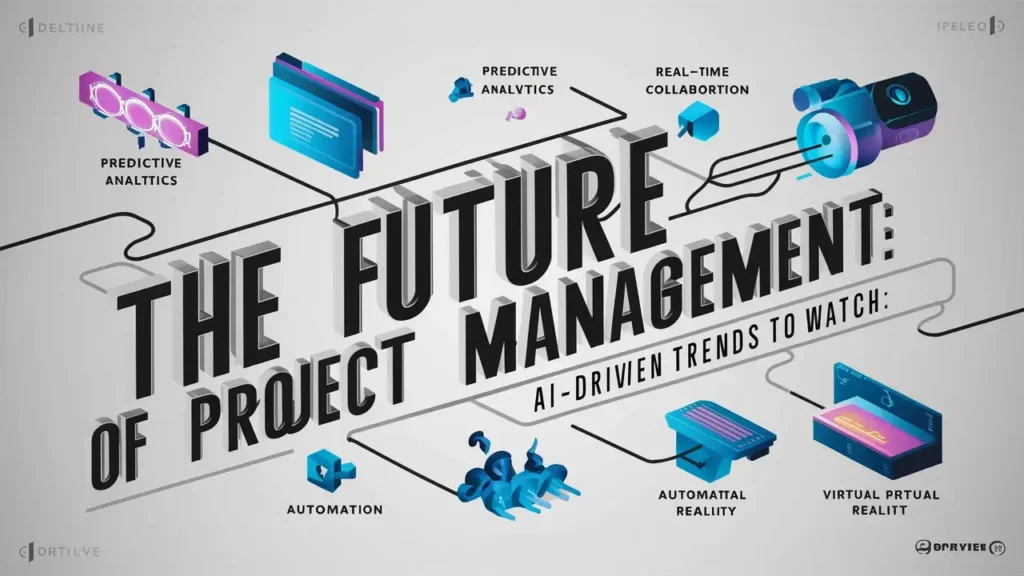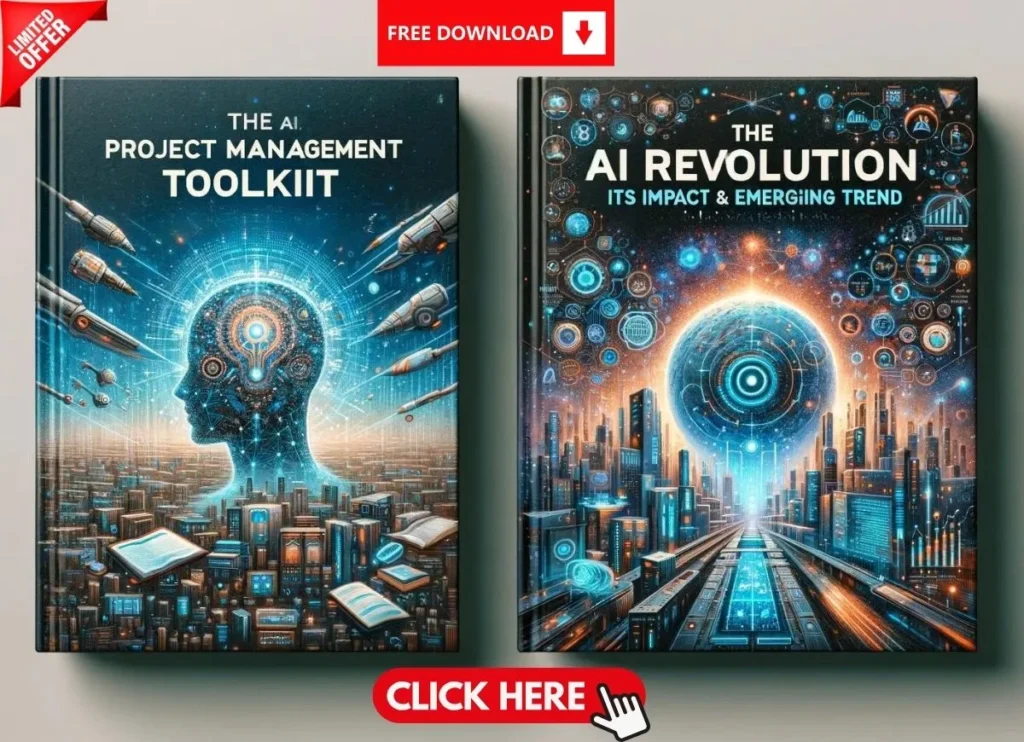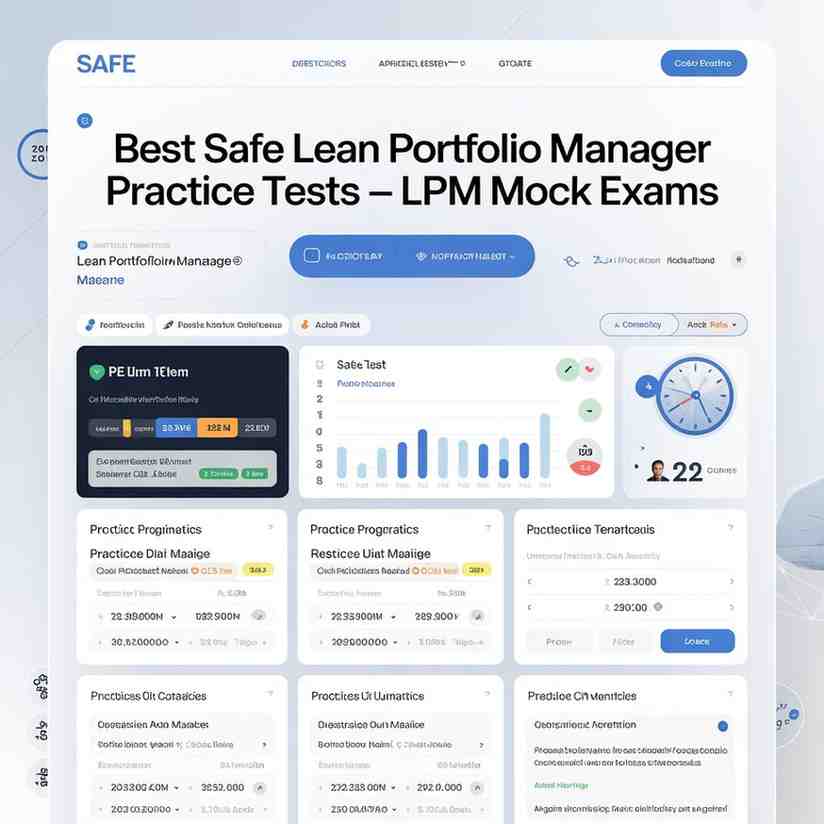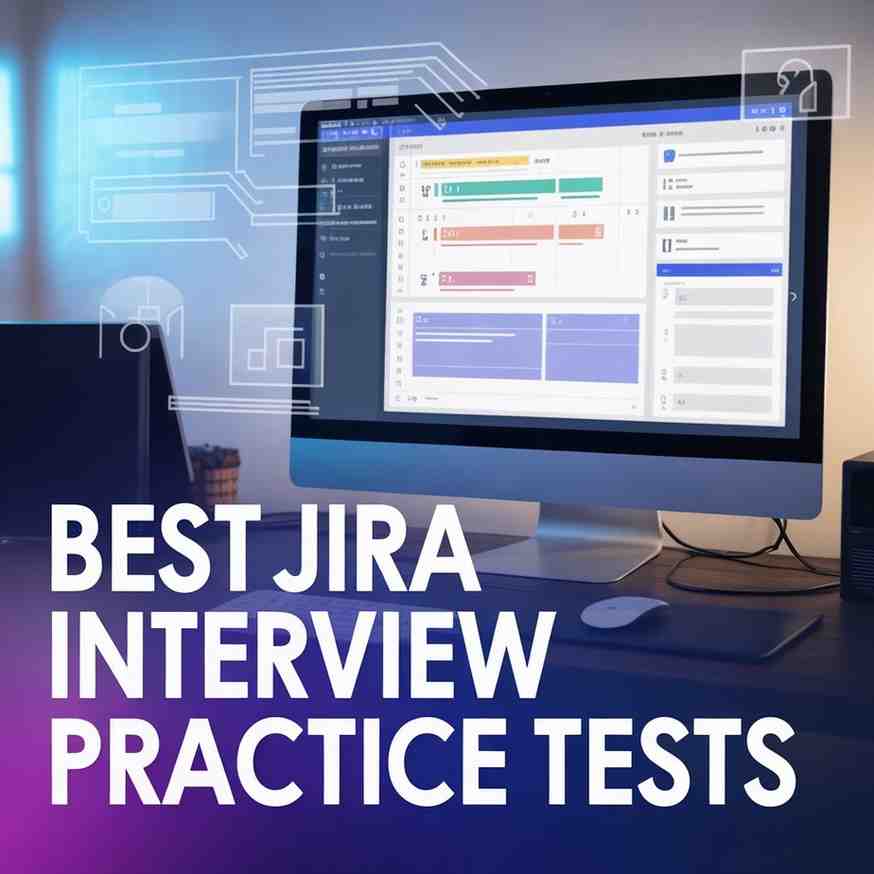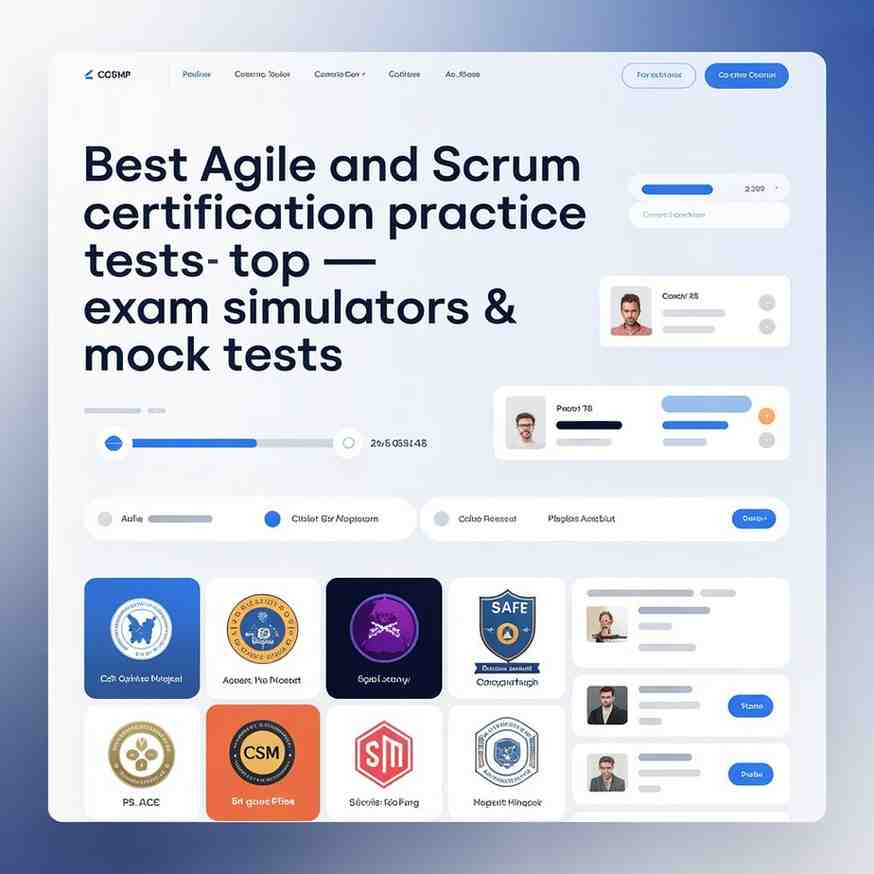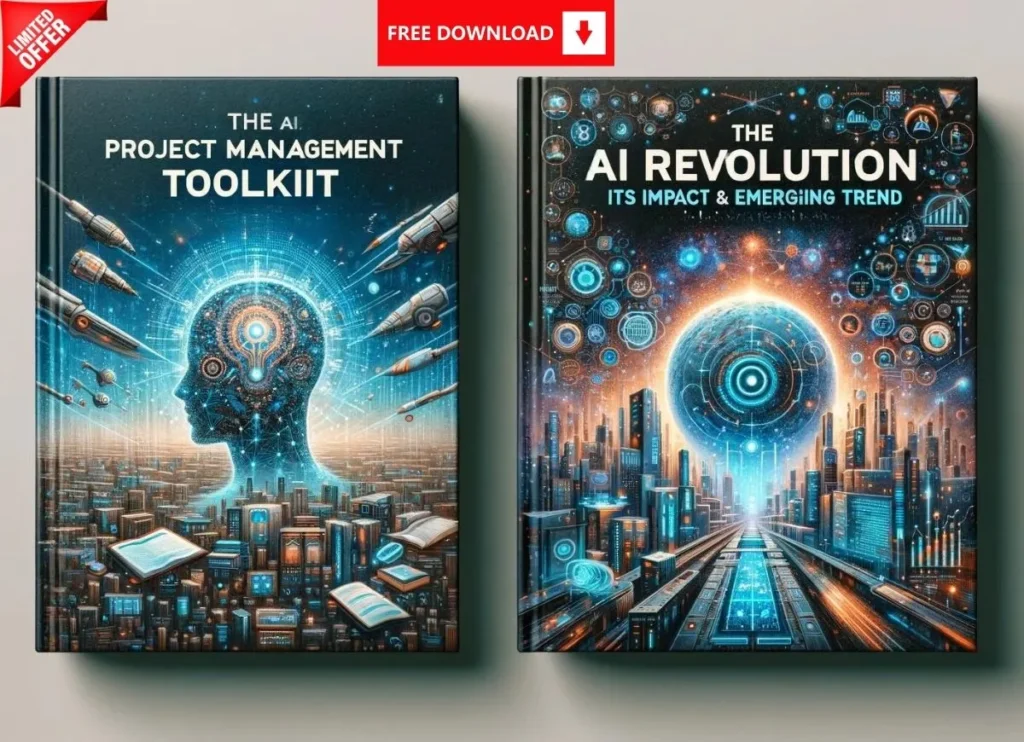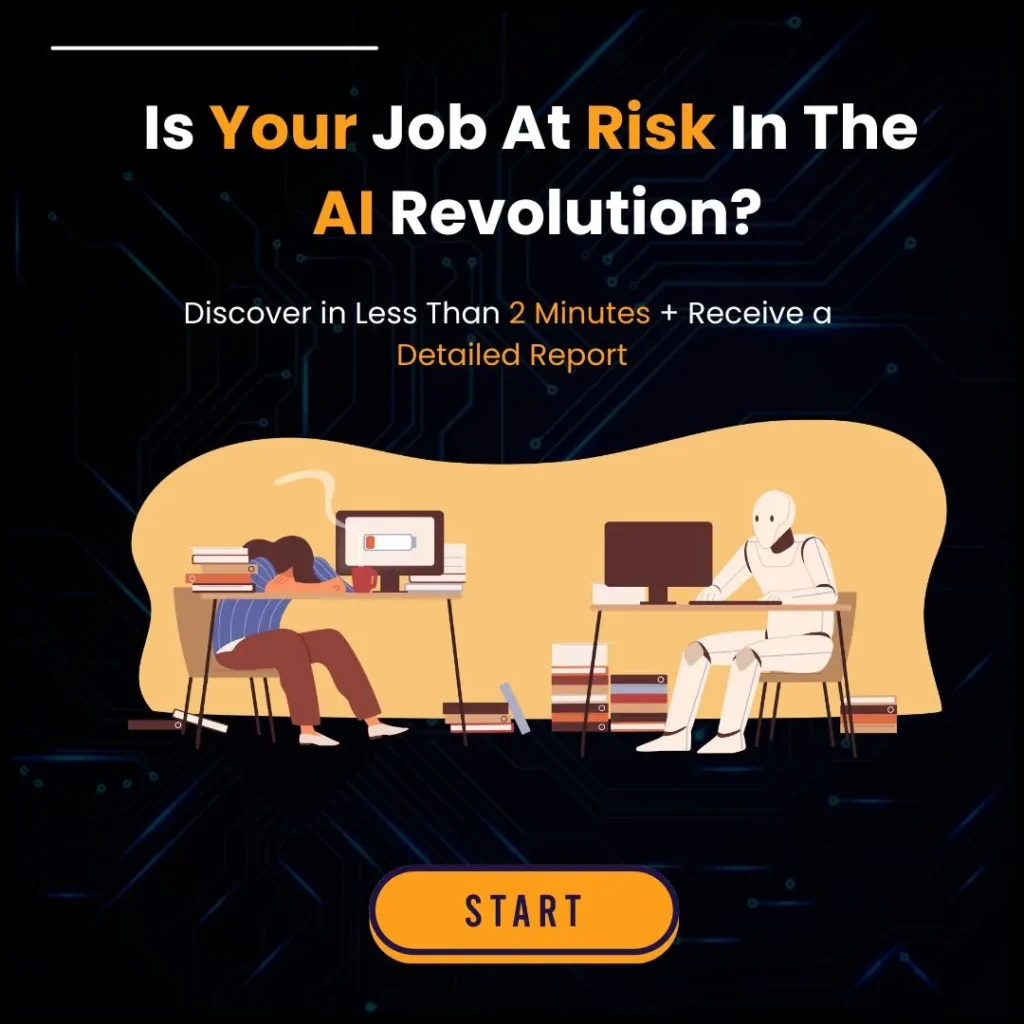1. Introduction
In an age where digital transformation reshapes industries almost overnight, project management stands at a crossroads. Conventional project management tools and techniques, while still relevant, are no longer sufficient to cope with the demands of global, fast-paced markets. Team members may be scattered across continents, product iterations arrive weekly rather than yearly, and new frameworks or technologies can emerge—and dominate—at dizzying speed.
Enter AI in Project Management. Once considered futuristic, artificial intelligence is increasingly essential for project managers (PMs) seeking greater precision, resource efficiency, and agility. From automation in project management tasks to predictive analytics that warn of schedule slippage before it happens, AI presents a powerful toolbox to tackle complexities that once stymied even the most experienced PMs.
In this blog post, we’ll explore the future of project management by highlighting AI-driven trends poised to transform how projects are planned and executed. You’ll discover which emerging technologies to watch for in the next few years, how automation accelerates progress while reducing errors, and why continuous learning is crucial to staying ahead of these paradigm shifts. By the end, you’ll be better equipped to navigate the rapidly evolving landscape of AI in project management—and keep your career on the cutting edge.
2. The Rise of AI in Project Management
Project Management Trends have always mirrored broader technological shifts: the adoption of Gantt charts decades ago, the rise of Agile and Lean frameworks, and the more recent pivot to cloud-based collaboration tools. AI represents the next big leap.
Why AI, and Why Now?
- Increasing Data Volume: Every project generates data (task progress, resource usage, quality metrics). AI excels at sifting through large datasets to uncover patterns or insights invisible to manual methods.
- Demand for Speed & Efficiency: As competitive pressures mount, businesses expect project managers to deliver results faster—without compromising quality. AI-driven platforms can automate low-level tasks, letting PMs focus on strategic decisions.
- Complex, Global Projects: Multinational teams, 24/7 development cycles, and cross-functional deliverables create complex project ecosystems. AI can help manage these complexities by identifying risks early and optimizing resource allocation.
- Cultural Shift: AI has become more accepted, with user-friendly solutions like ChatGPT illustrating the potential for generative AI in day-to-day tasks.
The question is no longer whether AI will reshape project management, but how quickly—and which AI-driven trends will dominate.
3. AI-Driven Trends Redefining Project Management
3.1 Advanced Automation and RPA
Robotic Process Automation (RPA) frees project managers from repetitive tasks. For instance, automatically sending reminders for overdue tasks, updating spreadsheets or dashboards, or extracting relevant details from system logs. This not only saves time but also reduces the risk of human error in administrative chores.
- Example: If a project manager uses multiple software tools—time-tracking, email, an ERP system—RPA bots can sync data across these platforms, ensuring real-time updates.
- Benefit: Enhanced data accuracy, letting PMs devote more mental bandwidth to strategic work like stakeholder alignment and innovation.
3.2 Predictive Analytics and Real-Time Forecasting
Perhaps the most game-changing AI in Project Management feature is the ability to forecast risks, costs, and timelines based on historical data:
- Schedule Predictions: By analyzing historical velocity data in Agile sprints or performance metrics in Waterfall frameworks, AI models can flag tasks that are likely to overrun.
- Cost Estimation: AI can compare budget vs. actual spending data from similar projects, calibrating cost predictions as the project unfolds.
- Proactive Risk Assessment: If a certain vendor historically underperforms on tight deadlines, predictive models can recommend adjusting schedules or involving an additional resource.
3.3 Intelligent Resource Allocation
Manual resource assignment often relies on guesswork or partial data about availability, skill sets, or project priorities. Emerging AI solutions promise “smart” resource allocation:
- Skill Matching: AI systems map tasks to team members based on known skills, historical performance, or even personality traits that enhance team synergy.
- Dynamic Reassignment: If a new high-priority project arises, the system might suggest rebalancing staff, highlighting how it affects ongoing timelines.
- Continuous Learning: Over time, the AI refines its suggestions as it learns which assignments work best under specific conditions.
3.4 Natural Language Processing and Chatbots
Natural Language Processing (NLP) is revolutionizing communication-heavy roles like project management:
- Automated Meeting Notes: AI listens to or processes meeting recordings, generating summaries and action item lists.
- Chatbots: They can answer common queries from team members (e.g., “When is the next sprint review?”) or external stakeholders, bridging time-zone gaps.
- Sentiment Analysis: Some advanced NLP tools gauge team morale or stakeholder sentiment, offering early warning of dissatisfaction or conflict.
3.5 Hyper-Collaboration Platforms
Instead of juggling Slack, Trello, email, and MS Teams, future platforms will likely unify these channels under one AI-enabled umbrella:
- Unified Dashboard: One place to see tasks, dependencies, real-time updates, and communications relevant to each deliverable.
- Adaptive Workflows: The AI “learns” each team’s workflow preferences (like daily stand-ups at 9 AM, code reviews every Friday) and automates scheduling or reminder processes.
- Cross-Integration: The platform can integrate with your CRM, financial systems, or HR database to automatically request new hires or generate purchase orders as the project demands it.
4. Next-Gen Project Management for Digital Transformation
Digital transformation isn’t just about adopting fancy software—it’s about rethinking organizational processes, mindsets, and business models. For project managers, this means:
- Orchestrating Rapid Iterations: Agile or DevOps-style cycles where new product features, data analytics, or AI capabilities roll out continuously rather than in lengthy “big bang” releases.
- Cross-Functional Leadership: Projects may involve data scientists, marketing strategists, IT, and external vendors, requiring a project manager skilled in bridging diverse silos.
- Strategic Value Delivery: Freed from time-consuming manual updates, future PMs focus on ensuring the project directly supports the company’s broader transformation goals.
In essence, the future of project management is about steering organizational shifts as much as delivering discrete tasks. AI is the catalyst that makes those shifts more precise, data-driven, and scalable.
5. The Impact of Automation on Project Management Efficiency
Automation has long been a corporate buzzword, but its potential for project management is especially notable:
- Administrative Work: Updating project trackers, sending reminders, or aggregating metrics can be automated via scripts or AI.
- Faster Decision-Making: Instead of waiting for weekly progress reports, PMs receive real-time notifications and can convene ad-hoc “micro-stand-ups” only when warranted.
- Reduced Errors: Manual data entries or sloppy record-keeping can sabotage entire project phases. Automation ensures consistency and traceability.
- Reallocation of Effort: With less time spent on housekeeping tasks, PMs can delve into strategic planning, stakeholder communication, and creative problem-solving.
What role does automation play in the future of project management? It serves as a foundation for broader AI-driven strategies. Once routine tasks are streamlined, advanced AI can flourish—analyzing resource usage, anticipating schedule bottlenecks, and enabling real-time course corrections.
6. Key Benefits of Integrating AI into Project Management Strategies
How AI is shaping the future of project management practices can be summarized in a few overarching benefits:
- Enhanced Accuracy and Predictability
Predictive models harness historical data to refine estimates on cost, time, and scope. These data-backed insights reduce uncertainty and minimize the margin of error. - Speed and Agility
Generative AI tools like ChatGPT can draft status updates, email templates, or even user stories in seconds, letting the PM pivot quickly to higher-value tasks. - Better Stakeholder Engagement
AI solutions produce real-time dashboards that display project metrics, budget burn rates, and potential risks in easy-to-understand formats, increasing transparency. - Optimized Resource Utilization
Through intelligent resource matching, AI ensures that the right people tackle the right tasks at the right time—avoiding either idle resources or burnout. - Continuous Improvement
Machine learning algorithms feed on outcome data to learn from each project. They get progressively better at forecasting, risk detection, and best-practice suggestions.
7. Emerging Technologies in Project Management for 2025
Looking a few years ahead, we can anticipate additional emerging technologies that expand the AI arsenal for project managers:
- Edge Computing and IoT Integration
Real-time data from IoT sensors (like field devices, manufacturing equipment) will feed directly into project management platforms, offering hyper-accurate progress tracking and resource status. - Blockchain-Based Contracts
Self-executing contracts could trigger milestone payments, vendor engagements, or compliance checks automatically upon certain conditions being met. - Mixed Reality (MR)
Virtual collaboration spaces where globally dispersed teams can “meet” in immersive 3D environments. AI will facilitate real-time translation, suggestion of next steps, and contextual data overlays. - Advanced Digital Twins
A digital replica of your entire project environment, from supply chains to workforce distribution, enabling “what-if” scenario modeling. For example, changing a design spec in the digital twin reveals the predicted cost and time impact before the real world is affected. - Ethical AI and Explainable Models
As AI decisions influence resource distribution or highlight potential employee performance issues, the push for ethical, transparent AI will intensify. Tools that clarify how an AI model arrived at a recommendation will become standard.
8. How Will AI Change Project Management in the Next Few Years?
How will AI change project management in the next few years? In short, it will likely intensify or accelerate trends we’re already seeing:
- Hyper-Adaptive Planning: Schedules become living documents, auto-adjusting to new data or shifting priorities.
- Seamless Collaboration: Communication barriers wane as AI-driven translation, summary generation, and real-time analytics unify team inputs.
- Role Evolution: The project manager’s role morphs into a “strategic orchestrator,” focusing on stakeholder alignment, culture, and business outcomes, with routine tasks delegated to AI systems.
- Heightened Accountability: With more data points tracked automatically, it becomes clearer who did what and when—improving accountability but demanding new attention to data governance and privacy.
Ultimately, AI in Project Management will shift from a novelty to a necessity. Competitive organizations will standardize AI-infused processes, raising the bar for what “successful project management” looks like.
9. Preparing for AI-Driven Changes: Continuous Learning and Up-Skilling
How can project managers prepare for AI-driven changes? By recognizing that knowledge from a single PM certification or workshop will not suffice for an entire career in this high-speed digital era. Continuous learning is essential.
- Stay Informed: Keep tabs on new AI solutions, software releases, and best practices. Follow reputable blogs, attend webinars, or join professional communities that focus on AI in PM.
- Obtain Specialized Certifications: Consider pursuing targeted credentials that blend AI fundamentals with advanced project management methodologies.
- Cultivate Soft Skills: AI might handle analytics, but it can’t replace human empathy, negotiation skills, or visionary thinking. These become even more valuable as automation rises.
- Embrace Data Literacy: Even if you aren’t writing code, you should understand the basics of data analysis, data privacy, and how AI models interpret and generate recommendations.
Urge PMs to stay ahead of the curve: Position yourself as a strategic thinker who leverages AI to uncover new efficiencies and solutions. Those who do so will be well-placed to lead tomorrow’s most innovative projects.
10. Case Studies: Real-World AI in Project Management
10.1 Construction
Scenario: A construction firm implementing a new commercial complex.
AI Use: Drones capture real-time site images; AI compares them with 3D building plans to detect deviations. Automated alerts highlight potential structural risks or supply shortfalls.
Outcome: Delays drop by 25%, and cost overruns reduce by 15%. Project managers have near-instant awareness of site bottlenecks, enabling quick course corrections.
10.2 Healthcare
Scenario: A hospital rolling out an AI-driven patient triage system.
AI Use: Predictive modeling identifies potential staff shortages or equipment constraints. Automated scheduling ensures optimum nurse-patient ratios, factoring in historical patient arrival data.
Outcome: Fewer patient bottlenecks, improved staff satisfaction, and better alignment with compliance regulations. The PM oversees the AI integration across multiple departments seamlessly.
10.3 IT & Software Development
Scenario: A multinational software company building a cloud service.
AI Use: Agile boards integrate AI to estimate completion times. Chatbots facilitate real-time stand-ups across time zones, summarizing progress and highlighting code merges that could conflict.
Outcome: Faster iteration cycles, fewer critical bugs at release, and improved cross-team transparency, all orchestrated by an AI-literate PM.
These examples show that AI in Project Management isn’t hype—it’s already delivering tangible improvements across industries.
11. How Project Managers Can Stay Ahead of the Curve
What are the upcoming trends in AI for project management? We’ve touched on many, but equally important is how to anticipate them proactively:
- Engage in Thought Leadership: Write about or present your AI-PM experiences. This not only elevates your personal brand but connects you with like-minded professionals.
- Experiment Safely: Pilot AI tools on small, non-critical projects. Learn from successes and failures, and document best practices.
- Collaborate Closely with IT/Dev Teams: Partner with data scientists or ML engineers in your organization to demystify AI concepts. This synergy ensures you align on realistic project scopes.
- Watch Regulatory Shifts: As AI usage expands, new laws around data protection, ethics, or model accountability may impact how you manage projects. Stay informed to avoid compliance pitfalls.
- Stay Agile: Even if your organization is still Waterfall-oriented, embed iterative feedback loops. AI thrives in flexible environments where it can quickly adapt to new data.
12. Future-Proof Your Career with Our AI-PM Program
The future of project management is undoubtedly driven by AI, automation, and next-gen collaboration. If you’re ready to embrace these cutting-edge trends, consider enrolling in our AI-PM Program—a specialized curriculum designed to equip you with the dual expertise of advanced AI capabilities and robust project management frameworks.
By joining our AI-PM Program, you’ll:
- Master predictive analytics and automation tools tailored for project environments
- Develop leadership skills that align AI initiatives with strategic corporate goals
- Engage in hands-on projects that simulate real-world AI-driven transformations
- Gain exclusive resources and networking opportunities with industry experts
Don’t get left behind. Click here to future-proof your career in project management by harnessing the power of AI today.
14. Conclusion
Project managers stand on the precipice of a paradigm shift: AI-driven trends are remaking everything from daily task coordination to high-level strategic planning. Automation in project management drastically reduces busywork, while predictive analytics and real-time dashboards deliver clarity to the once-murky realm of resource allocation and risk management. Collaborative AI solutions, from chatbots to hyper-integrated platforms, promise smooth synergy among globally dispersed, cross-functional teams.
Yet as with any technological revolution, the biggest asset remains the human factor. AI may excel at pattern recognition and fast calculations, but it cannot replace the empathy, stakeholder rapport, and cultural leadership that define great project managers. Instead, AI functions as a multiplier—amplifying the PM’s capacity to manage complexity, foresee pitfalls, and deliver projects that advance both the organization and the people within it.
The big takeaway: Continuous learning is non-negotiable. Whether through advanced training, dedicated AI-PM certifications, or immersive pilot projects, the project managers who thrive will be those who embrace, rather than resist, the new AI-driven possibilities. So, stay curious, experiment boldly, and keep your sights on the future of project management—where AI is not just a tool, but a collaborative ally guiding you to even greater achievements.

